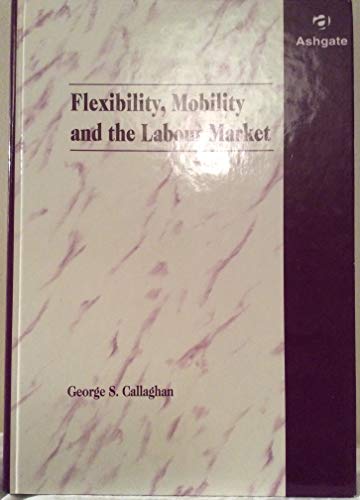
Inhaltsangabe
Politicians of all shades argue that the labour market should be more flexible and workers more mobile. But what does this mean in reality? How flexible and mobile are workers likely to be? Is there an ideological base to the language of flexibility? These are some of the issues covered in this book. Data from a large factory and office is used to argue that the macro labour market consists of non-competitive work groups where strongly held views and values represent a substantial barrier to simplistic definitions of flexibility and mobility. The analysis takes place in three chapters, dealing with recruitment for work, skills used in work and perceptions of different types of work and workers. The findings suggest that non-economic forces (such as institutional, social, historical and political phenomena) strongly influence the creation of separate work cultures. Furthermore, it is argued that the reason for differences between work groups being articulated in a defensive fashion reflects the climate of fear in the labour market, where flexibility is associated with a loss of the (often limited) power, control and influence workers have over their position in the labour market.
Die Inhaltsangabe kann sich auf eine andere Ausgabe dieses Titels beziehen.
Reseña del editor
Politicians of all shades argue that the labour market should be more flexible and workers more mobile. But what does this mean in reality? How flexible and mobile are workers likely to be? Is there an ideological base to the language of flexibility? These are some of the issues covered in this book. Data from a large factory and office is used to argue that the macro labour market consists of non-competitive work groups where strongly held views and values represent a substantial barrier to simplistic definitions of flexibility and mobility. The analysis takes place in three chapters, dealing with recruitment for work, skills used in work and perceptions of different types of work and workers. The findings suggest that non-economic forces (such as institutional, social, historical and political phenomena) strongly influence the creation of separate work cultures. Furthermore, it is argued that the reason for differences between work groups being articulated in a defensive fashion reflects the climate of fear in the labour market, where flexibility is associated with a loss of the (often limited) power, control and influence workers have over their position in the labour market.
Reseña del editor
A case study is used to argue that the macro labour market consists of non-competitive work groups with marked differences between groups suggesting separate work cultures. These differences present a barrier to simplistic free market policies of deregulation and labour market flexibility. In addition it is argued that these differences illustrate the importance of non-economic forces (such as institutional, social, historical and political pressures) in shaping the macro labour market. It is further argued that qualitative case study approach is necessary to isolate and interpret the processes of interaction between these forces.
„Über diesen Titel“ kann sich auf eine andere Ausgabe dieses Titels beziehen.
Suchergebnisse für Flexibility, Mobility and the Labour Market: A Case...
Flexibility, Mobility and the Labour Market: A Case Study Investigation
Anbieter: WeBuyBooks, Rossendale, LANCS, Vereinigtes Königreich
Zustand: Like New. Most items will be dispatched the same or the next working day. An apparently unread copy in perfect condition. Dust cover is intact with no nicks or tears. Spine has no signs of creasing. Pages are clean and not marred by notes or folds of any kind. Bestandsnummer des Verkäufers wbs3610653692
Gebraucht kaufen
Anzahl: 1 verfügbar
